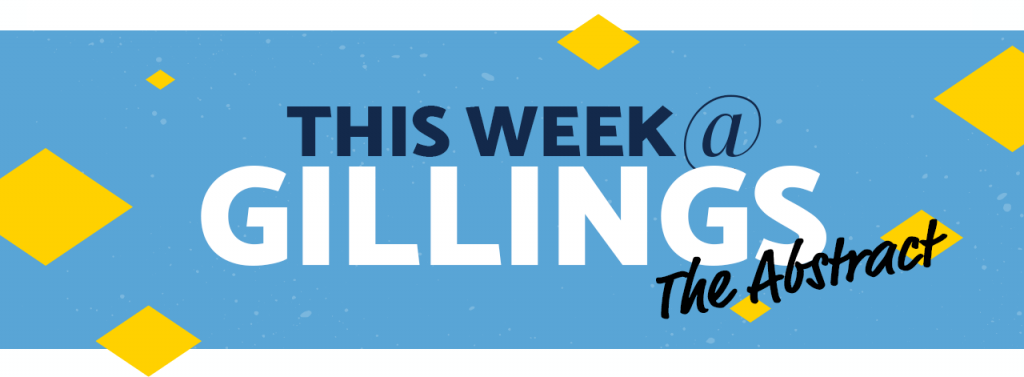
July 10, 2023
Whether you’re local or global, student or alumni, the Abstract’s weekly news digest will help you stay in the loop with our amazing Gillings School community.
Lin and colleagues publish new research on effects of COVID-19 vaccination and previous infection on children under 12

Dr. Danyu Lin
Danyu Lin, PhD, Dennis Gillings Distinguished Professor of Biostatistics at the UNC Gillings School of Global Public Health has collaborated with colleagues in the Department of Biostatistics and the North Carolina Department of Health and Human Services (NC DHHS) on a study in The Lancet titled “Effects of COVID-19 vaccination and previous SARS-CoV-2 infection on omicron infection and severe outcomes in children under 12 years of age in the USA: an observational cohort study.”
Data on the protection conferred by COVID-19 vaccination and previous SARS-CoV-2 infection against omicron (B.1.1.529) infection in young children are scarce. Using data from the N.C. COVID-19 Surveillance System and the COVID-19 Vaccine Management System, the study team aimed to estimate the time-varying effects of primary and booster COVID-19 vaccination and previous SARS-CoV-2 infection on subsequent omicron infection and severe illness (hospital admission or death) in children younger than 12 years of age.
They found that, for children 5–11 years of age, the effectiveness of primary vaccination against infection, compared with being unvaccinated, was 59.9% at 1 month, 33.7% at 4 months, and 14.9% at 10 months after the first dose. Compared with primary vaccination only, the effectiveness of a monovalent booster dose after 1 month was 24.4% and that of a bivalent booster dose was 76.7%. The effectiveness of omicron infection against reinfection was 79.9% after 3 months and 53.9% after 6 months.
For children 0–4 years of age, the effectiveness of primary vaccination against infection, compared with being unvaccinated, was 63.8% at 2 months and 58.1% at 5 months after the first dose, and the effectiveness of omicron infection against reinfection was 77.3% after 3 months and 64.7% after 6 months.
For both age groups, vaccination and previous infection had better effectiveness against severe illness as measured by hospital admission or death as a composite endpoint than against infection.
Lund and Henderson to lead new NCI-funded research to evaluate benefits and risks of lung cancer screening

Dr. Jennifer Lund
Jennifer Lund, PhD, associate professor of epidemiology at the Gillings School, and Louise Henderson, PhD, MSPH, from the Department of Radiology at the UNC School of medicine, have received a 5-year R01 grant for nearly $1.8 million from the National Cancer Institute (NCI) with the aim of applying causal inference methods to improve estimation of the real-world benefits and harms of lung cancer screening.
Randomized controlled trials have demonstrated a reduction in lung cancer mortality with annual lung cancer screening with low-dose computed tomography, but real-world populations eligible for and undergoing lung cancer screening differ substantially from trial populations. By leveraging data from a randomized controlled trial and multiple real-world data sources, the proposed study will evaluate the benefits and harms of lung cancer screening in clinical practice settings with a focus on optimizing internal and external validity by applying novel causal inference methodologies. The proposed research is consistent with NCI’s Cancer Moonshot Initiative, which issued a call to action on cancer screening and early detection in February 2022.
Other faculty on the grant include Michael Hudgens, PhD, and Til Stürmer, MD, PhD, from the Gillings School, as well as Dan Reuland, MD, MPH, from the School of Medicine.
Gillings nutrition and health behavior experts publish study on effects of pictorial warnings on parent purchases of sugar-sweetened beverages.

Dr. Marissa Hall
Marissa Hall, PhD, assistant professor of health behavior at the Gillings School, Anna Grummon, PhD, Tara Queen, PhD, and fellow colleagues from the Carolina Population Center and Lineberger Comprehensive Cancer Center, have published a new study in the International Journal of Behavioral Nutrition and Physical Activity titled “How pictorial warnings change parents’ purchases of sugar-sweetened beverage for their children: mechanisms of impact.”
In the study, the researchers examined the psychological mechanisms through which pictorial warnings reduced sugary drink purchases, using data from a trial conducted in the UNC Mini Mart. The team found that pictorial warnings reduced parents’ purchases of sugary drinks for their children by making parents think sugary drinks are less healthful for their children and by reducing their intentions to serve sugary drinks to their children. They concluded that communication approaches targeting healthfulness perceptions and intentions to serve sugary drinks may motivate parents to buy fewer sugary drinks for their children.
